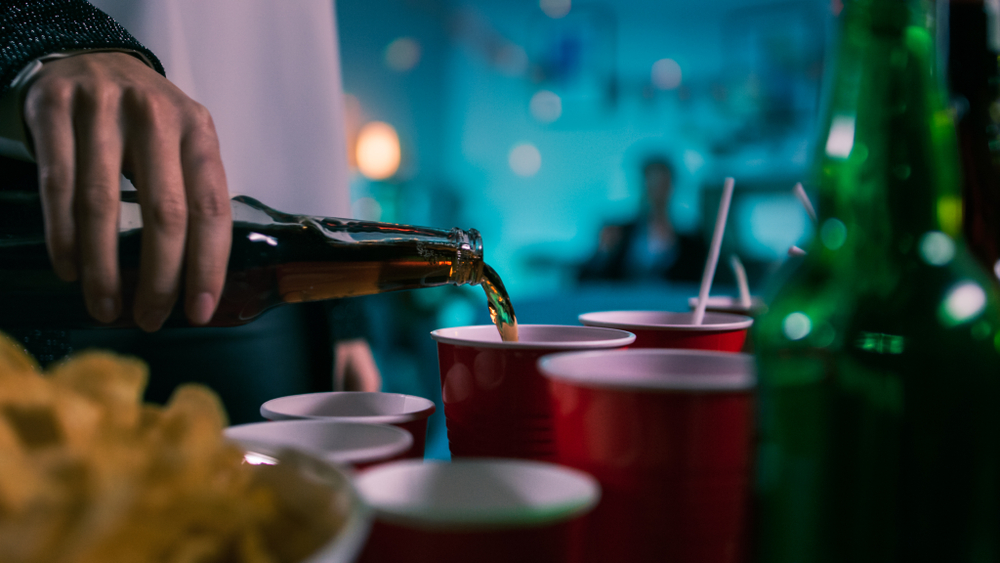As first appeared in KevinMD.com
By Aron Solomon
In 2009, the famed NPR radio series This American Life aired an episode that would forever change how we looked at college life. “#1 Party School” featured Penn State University and shed light on the rampant alcohol abuse in higher education. Over a decade later, this issue remains a persistent challenge on college campuses. This article delves into the legacy of the “#1 Party School” episode and its impact, the current state of college alcohol abuse, its consequences, ongoing efforts to combat it, and the roles of universities and society in addressing this crisis.
The legacy of “#1 Party School”
The iconic episode, “#1 Party School,” not only catapulted Penn State into the national spotlight but also raised awareness about the culture of excessive drinking in colleges. It served as a stark reminder that the college experience could sometimes be overshadowed by dangerous levels of alcohol consumption.
Part of the theme of the episode is that alcohol use and abuse on college campuses leads students who would otherwise generally exercise good judgment to, simply put, lose it. In the decade and a half since this episode, none of the lessons life at Penn State, which was not a unique situation but rather reflective of every college campus in the nation,
The current landscape of college alcohol abuse
Today, college alcohol abuse remains a significant issue. Statistics and studies reveal the alarming prevalence of excessive drinking on campuses, highlighting the role of peer pressure, stress, and social norms in perpetuating this problem.
According to the 2021 National Survey on Drug Use and Health (NSDUH), 49.3 percent of full-time college students ages 18 to 22 drank alcohol in the past month. Of those, about 27.4 percent engaged in binge drinking during that same time frame. The same study estimates that “about 1,519 college students aged 18 to 24 die from alcohol-related unintentional injuries, including motor vehicle crashes.”
Joseph Lesniak, a Pennsylvania lawyer who represents students who get into legal jams relating to alcohol on and off campus, points out that “The vast majority of college students who experiment with alcohol have no idea how quickly what was intended to be a relatively innocent night drinking with friends and classmates can become a life-altering legal mess. The more education colleges can provide their students on the true risk profile involved with using alcohol, both for underage and legal drinkers, the better it is for everyone.”
Consequences of college alcohol abuse
One of the strengths of the radio episode was that it went beyond the surface. While it highlighted that excessive and irresponsible drinking has serious health consequences, it also shined a light on impaired academic performance, damaged social relationships, and even the risk profile for the colleges. On the one hand, these colleges might attract some students by being known as a school that students like to attend, but also turn off prospective applicants and their families when the school is known for alcohol abuse.
Efforts to tackle the problem
In response to the crisis, numerous initiatives and programs have emerged to curb alcohol abuse in colleges.
Many colleges have made alcohol education mandatory for students, either through classes during new student orientation or required online courses. This education aims to provide students with a better understanding of the risks and health consequences associated with binge drinking,
Some colleges have focused on providing students with a more accurate picture of binge drinking on campus. This approach aims to challenge the distorted perception that many students have about their peers’ drinking habits and may help reduce overall alcohol consumption.
Instead of expecting students not to drink at all, colleges often aim for harm reduction. This approach focuses on reducing the intensity of drinking and the problematic behaviors associated with it. Examples of harm reduction policies include offering incentives for designated drivers, extending campus transportation services to reduce drunk driving, and allowing legal drinking age students to host parties on campus under supervision. These programs make sense and were also highlighted in “#1 Party School” because the reality is that telling college students not to drink is far less effective than all of these other potential interventions.
Colleges have also recognized the need to support students who are in recovery from alcohol addiction. Providing resources and services for these students can help them maintain their sobriety and succeed academically.
Moving forward
To combat college alcohol abuse, proactive measures are crucial. Education, counseling, and stricter policies are potential solutions. This section encourages collective efforts involving students, universities, and the broader community to address this pressing issue.
While the “#1 Party School” radio episode may have faded from the headlines, its message is more relevant than ever. College alcohol abuse persists, demanding immediate attention. This article emphasizes the urgency of addressing the problem and calls for collective action involving universities, students, and society to ensure a safer and more responsible college experience for all.
About Aron Solomon
A Pulitzer Prize-nominated writer, Aron Solomon, JD, is the Chief Legal Analyst for Esquire Digital and the Editor-in-Chief for Today’s Esquire. He has taught entrepreneurship at McGill University and the University of Pennsylvania, and was elected to Fastcase 50, recognizing the top 50 legal innovators in the world. Aron has been featured in Forbes, CBS News, CNBC, USA Today, ESPN, TechCrunch, The Hill, BuzzFeed, Fortune, Venture Beat, The Independent, Fortune China, Yahoo!, ABA Journal, Law.com, The Boston Globe, YouTube, NewsBreak, and many other leading publications.



